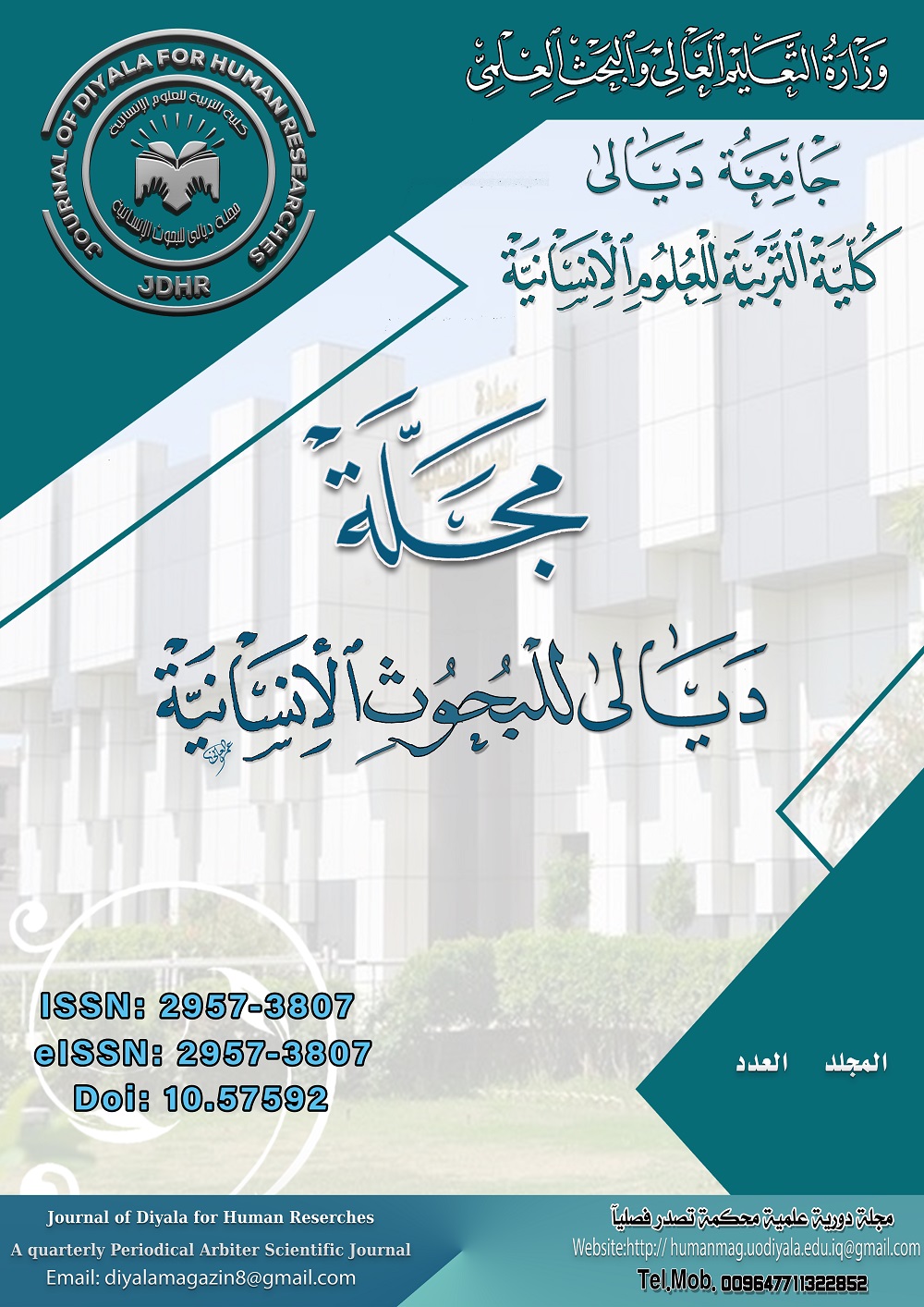The Paradox of Freedom and Constraint in Shahrnush Parsipur's Women Without Men (1989
DOI:
https://doi.org/10.57592/48xsyt65الكلمات المفتاحية:
Feminism, Freedom and Constraint, Bold narrative, Patriarchal approachالملخص
This paper examines the complicated relationship between freedom and constraint in Shahrnush Parsipur's Women Without Men (1989). It employs a feminist literary theoretical framework, with a specific focus on gender, power, and agency, to analyze how the novel juxtaposes these opposing forces. Additionally, a postcolonial lens is applied to explore the text's engagement with historical and cultural oppression. Through a close reading of the narrative, this paper examines how Parsipur constructs a paradoxical world for her female protagonists in 1950s Iran and how she challenges traditional patriarchal narratives while engaging with issues of sexuality, desire, and female pleasure within a restrictive cultural context. By focusing on the experiences of five women from diverse backgrounds, the novel offers a multi-layered portrayal of the complexities surrounding societal norms, personal desires, and the pursuit of autonomy within a patriarchal context. The research methodology is qualitative, allowing for a nuanced analysis of the textual intricacies that shed light on the tensions between liberation and confinement. The opening sections of the novel emphasize the pervasive nature of laws governing female mobility, implicitly drawing attention to the patriarchal structures underlying these restrictions. Through the characters' experiences, the paper reveals the consequences of transgressing these boundaries, highlighting the punitive measures imposed by male guardians and the withdrawal of protection as forms of social control. The space beyond these legal constraints is infused with desire, symbolizing each character's unique relationship to a patriarchal order that defines their mobility based on their sexual and marital status. Ultimately, Women Without Men implies that true liberation surpasses political frameworks. Parsipur's bold narrative and feminist undertones challenge the prevailing norms, offering a poignant commentary on the female experience within a patriarchal society. The novel's exploration of the paradox between freedom and constraint offers a rich terrain for literary analysis and socio-political reflection.
التنزيلات
منشور
إصدار
القسم
الرخصة
الحقوق الفكرية (c) 2025 Daria Soorkew Shareef

هذا العمل مرخص بموجب Creative Commons Attribution-NonCommercial 4.0 International License.

